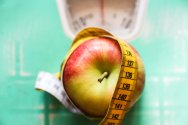
Background
How Healthy Diets Reduce Cancer Risk
By eating healthy and exercising enough, people can reduce the risk of various types of cancer. Wageningen researchers are studying the relationship between diet and cancer.
One in three Dutch people will be diagnosed with cancer sooner or later. A small proportion of those cases – between 5 and 10% – are caused by a hereditary predisposition. A much larger percentage has to do with lifestyle: unhealthy eating, smoking, alcohol consumption, too little exercise.
Avoid fast food
Healthy food is therefore extremely important to reduce the risk of cancer (and other diseases). 'The risk of colon cancer, for example, is 17% higher for someone who eats red meat more than five times a week than for someone who does so less often,' says Ellen Kampman, professor of Nutrition and Disease at WUR. We also know that being overweight increases the risk of a number of cancers. That's because being overweight can affect your hormones, for example, or lead to insulin resistance.'
Kampman has been studying the relationship between diet and cancer for decades. She is not alone: more than 10,000 studies have been done worldwide on this subject. As a result, scientists have an increasingly clear picture of the link between dietary patterns and cancer risk. Most recommendations for a healthy diet will sound familiar by now. Eat plenty of fruit and vegetables, avoid alcohol, fast food and soft drinks with sugars and try to get enough exercise.
Inside the doctor's head
The advice of nutritionists is by no means followed by everyone. Kampman notices that more and more people are conscious about nutrition and health, but she believes these are mainly highly interested people. Consequently, most research in the world of nutrition is now about behavioral change. How can we ensure that more consumers make the healthy choice?
Kampman would like to see the government take more action to encourage healthy eating. Cheaper fruit and vegetables, for example, or rules to make healthy choices easier in supermarkets, restaurants and canteens. Doctors also have a crucial role to play. Kampman: 'Doctors need to become more aware of the importance of nutrition in preventing cancer, and in treating it. For prognosis, quality of life and recovery. That really needs to get into the heads of the doctors.”
